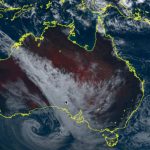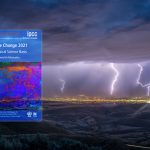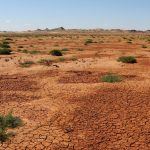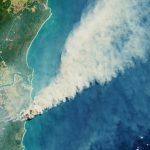 August 15, 2021 12:16 pm
Published by Climate Extremes
August 15, 2021 12:16 pm
Published by Climate Extremes
An interesting conversation at Kim Reid’s first AMOS Conference led not only to a new PhD topic but also to her taking part in an international collaborative research project.
 August 9, 2021 6:00 pm
Published by Climate Extremes
August 9, 2021 6:00 pm
Published by Climate Extremes
Australian researchers in the ARC Centre of Excellence for Climate Extremes have made major contributions to the 2021 IPCC Working Group 1 report, through the authorship of the report, review and the many scientific papers cited in the report.
 July 2, 2021 1:49 pm
Published by Climate Extremes
July 2, 2021 1:49 pm
Published by Climate Extremes
Prof Julie Arblaster, Prof Lisa Alexander, and Assoc Prof Gab Abramowitz discuss the research around the Attribution and Risk research program. The episode explores why we can detect climate signals in some extreme weather events and not others and the implications this has for understanding how these events may change.
 December 17, 2020 10:58 am
Published by Climate Extremes
December 17, 2020 10:58 am
Published by Climate Extremes
An international team of authors led by NCAR scientist and CLEX PI Jerry Meehl, along with CLEX CIs and AIs, propose that the Pacific and Atlantic ocean basins are mutually interactive, with each basin influencing and responding to processes in the other basin.
 September 24, 2020 10:22 am
Published by Climate Extremes
September 24, 2020 10:22 am
Published by Climate Extremes
CLEX researchers examined the uncertainties of the input data of three commonly used drought indices, with the data coming from different sources, including observations and reanalysis. The ability of these indices to detect drought was assessed against soil moisture from multiple global land surface models.
 August 21, 2020 10:59 am
Published by Climate Extremes
August 21, 2020 10:59 am
Published by Climate Extremes
While the Extremes Rainfall RP has found itself in challenging times as a result of the COVID-19 pandemic, they have still found moments to celebrate and have been delighted by the enormous range of extraordinary research.
 June 30, 2020 10:46 am
Published by Climate Extremes
June 30, 2020 10:46 am
Published by Climate Extremes
CLEX researchers found the influence of climate change and the depletion in stratospheric ozone are the major drivers over the Atlantic Oceans that shift westerly winds further south. However, over the Pacific and Indian oceans natural variations induced by sea surface temperature changes in the tropical Pacific also play an important role.
 May 18, 2020 11:02 am
Published by Climate Extremes
May 18, 2020 11:02 am
Published by Climate Extremes
Australian researchers assess the ability of recently released climate models to simulate the climate of Australia and the new scenarios for 21st Century climate change.
 December 7, 2019 8:00 am
Published by Climate Extremes
December 7, 2019 8:00 am
Published by Climate Extremes
Research from RP2, highlights how bushfires may change in the future, explores differences in heatwaves and shows how Antarctic conditions can affect Australia.
 October 22, 2019 1:26 pm
Published by Climate Extremes
October 22, 2019 1:26 pm
Published by Climate Extremes
A new study with Centre of Excellence researchers warns that changes in springtime winds high above the South Pole could trigger higher than usual heat waves and fire-prone weather conditions in Australia.










